Experts
Experts advise us on questions related to school architecture and education. Our experts include architects for educational buildings and the preservation of historical monuments and educationalists with comprehensive experience in innovative schooling, boarding schools, and school administration. They worked with us on the adaptation of our 2020 architectural master plan according to the educational requirements in our framework school concept of 2021. The education experts are now preparing a version of the framework concept that will enable the school founders’ team to implement it. The terms of this concept are coordinated closely with the education authorities of the state of Brandenburg.
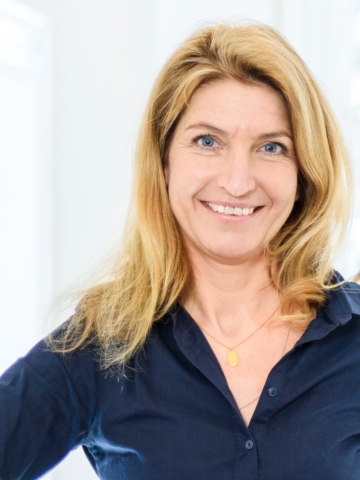
Kirstin Bartels
Architect and Consultant for School Buildings
Kirstin Bartels is a freelance architect and consultant for school buildings in Hamburg. She has planned and implemented innovative educational and cultural buildings both in Norway and in Germany. After studying architecture at the University of Hanover and spending a year abroad at the Technical University of Graz, she lived and worked for 14 years in Oslo, Norway, and there developed her special focus on educational architecture. She has been back in Germany since 2015 and has her own office here.
Her most recent project is an extension to the Elisabeth-von-Thadden School, which was organised by IBA Heidelberg under the motto “Knowledge Creates Cities” and ceremoniously opened in summer 2022. Bartels kicked off her work as an advisor to schools with her participation in the Montag Foundation national competition “Pilot Projects Planning and Building Schools.” Since then she has been advising and accompanying private and public schools, and cities and communities in Germany and abroad in the development of integrated spatial and educational concepts within the scope of the phase zero planning stage.
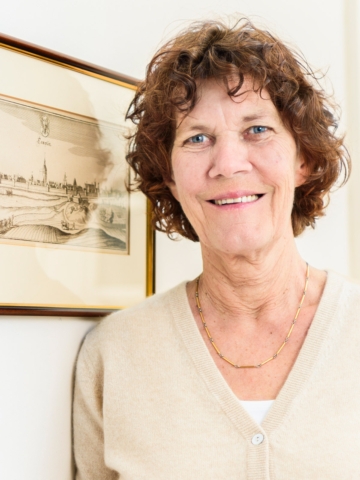
Helga Boldt, schools consultant, formerly of the Münster schools department and Neue Schule Wolfsburg
Helga Boldt worked for two decades as a comprehensive school teacher in Bielefeld and then as a department head for education, culture, and sport in the city of Münster. At the same time she was a member of the German Bundestag Study Commission on “Culture in Germany.” From 2008 to 2018 she was responsible for setting up the Neue Schule Wolfsburg (integrated school model for full-day schooling for classes 1 to 13). She works closely together with the Robert Bosch Foundation on the German School Prize, for which she was a jury member for 15 years. For many years she has been accompanying projects run by public institutions and foundations at the interface between education, culture, architecture, and urban development, including as an advisor on school buildings and an education expert for the phase zero planning stage.
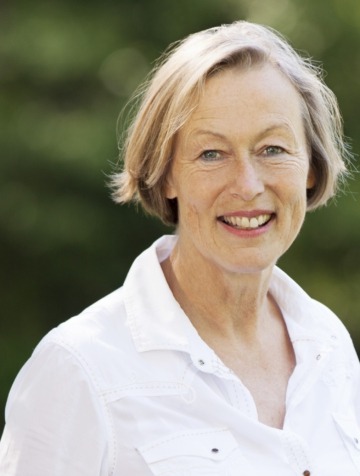
Heike Elz
Former head of the Marienau boarding school
Having been trained as a grammar school teacher in German and English, she worked in various private boarding schools (Schule Schloss Stein, Institut Lucius, Schule Marienau) and, as an internal member of staff, got to know both the school and boarding school sector intensively and appreciated working in an educational environment that is so rich in opportunities to help young people ‘grow’.
In the course of her professional career, she worked in management positions.
After retiring, it was important to her to be able to continue working in her favourite subject, boarding school.
She is an honorary member of the board of the DIV (Die Internate Vereinigung), deputy chairwoman of the board of trustees of the Lietz boarding schools Bieberstein, Hohenwehrda, Haubinda and a member of the team of experts at est.
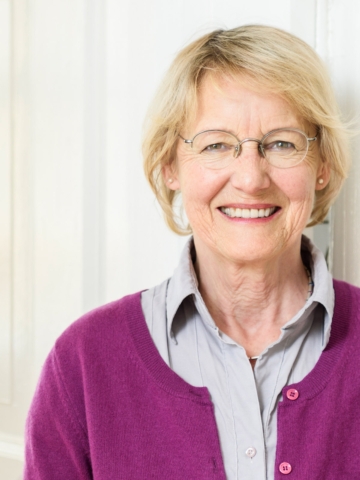
Cornelia von Ilsemann
Education expert with experience in school administration (Hamburg, Bremen, The Standing Conference of the Ministers of Education and Cultural Affairs of the Länder in the Federal Republic of Germany) and practice (Max-Brauer-Schule Hamburg)
From 2003 to 2013 Cornelia von Ilsemann headed the Department of Education under the Senator for Education and Science in Bremen. Before that, she was a department head in the Department of Schools, Youth, and Vocational Education in Hamburg. As the former chair of the Schools Committee at the Standing Conference of the Ministers of Education and Cultural Affairs, she participated in the development of educational standards for the higher school examination Abitur. She previously headed the grammar-school upper level at the Max-Brauer-Schule in Hamburg, where the concept of the profiled upper school was developed.
Cornelia von Ilsemann was a member of the programme team at the German Schools Academy and is a member of the jury of the German Schools Prize.
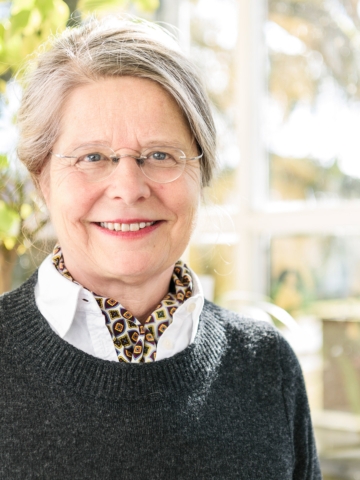
Margrit Kolck
Architect, Kühn-von Kaehne und Lange Architects
Margrit Kolck has been working at Kühn-von Kaehne und Lange Architects since 2018. She has key responsibility for drafting the est (former Joachimsthalsches Gymnasium Templin) master plan, and for adapting the redesign of the existing buildings to the architectural requirements of the educational concept. As project lead, she coordinates funding applications for the renovation of the listed building and the roofs, and she also ensures that construction meets requirements.
Margrit Kolck studied architecture at the Management University of East Westphalia-Lippe in Detmold. She then worked for two years in New York, USA, at Swanke Hayden Connell Architects in the fields of tenders and administrative buildings.
Upon returning to Germany, Margrit Kolck joined Scheffler + Warschauer Architects in Frankfurt am Main, where her projects included the renovation of the Liebighaus Sculpture Collection and the Guest House of Hessischer Rundfunk. After moving to Potsdam, she spent several years with her family, working as a freelance architect in renovation projects at various stages of their development, and she also conducted a feasibility study on the development potential for tourism in the rural region of Berlin-Brandenburg.
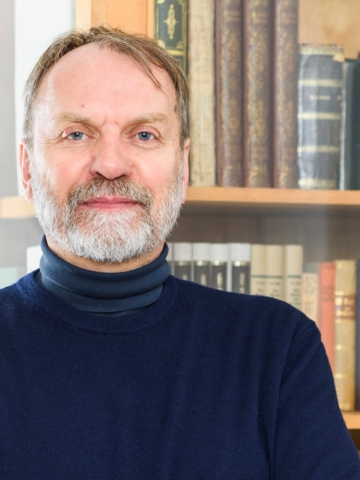
Gerald Kühn von Kaehne
Dipl. – Ing. architect BDA, Kühn-von Kaehne and Lange Architects
Studied architecture in Paderborn
Postgraduate studies in the preservation of historical monuments in Bamberg
Since 1991, Kühn-von Kaehne and Lange Architects have been operating from Potsdam, accompanying many projects and monuments along the way from the early period after German unification to today. Their work usually begins with stocktaking, research in archives, and plans for renovation. This involves exploring and understanding specific sites and places, taking stock of and assessing the monument in question, plotting out its future potential, and gaining a sense of how it will fit into the surrounding landscape and existing buildings. At the same time, it is important to listen to clients and future users, and to develop a plan for the use of the building that as far as possible meets the needs of all stakeholders and also preserves the identity of the site and the building.
Historical sites and buildings must also be modernised and adapted to contemporary requirements in terms of energy use, building materials, and climate technologies. The history of the old building must remain legible and tangible – or become so again.
New construction within historical sites is a bridge between the past and present. The respectful coexistence of old and new is a form of rewriting of history that creates new identities. Preserving the old instead of just creating new buildings is one of the most effective forms of sustainability, having stood the test of time over many centuries. Castles and palaces, school buildings, modern and historical dwellings, housing settlements, theatres, industrial buildings, factories, museums, gardens, monasteries and libraries – over the past 32 years Kühn-von Kaehne and Lange have undertaken many projects focused on new concepts for old buildings. They have gained immense experience and expertise, with which they contributed to the initial est application for recognition as a nationally significant monument, and then also to the development of the school master plan.
With the est’s status as a nationally significant monument, the German authorities at national and federal state levels are committed to providing substantial funding to support the reconstruction and expansion of the school. Gerald Kühn von Kaehne’s team has been enthusiastically supporting the vision of the est since 2018.
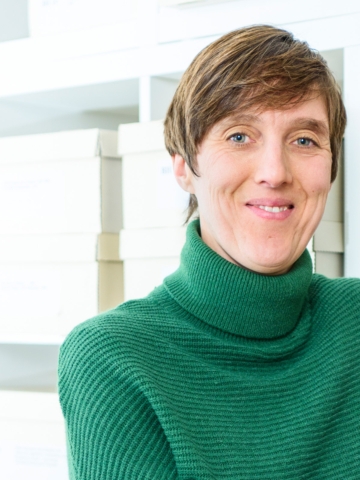
Barbara Stockmeier
Initiative Neues Lernen and Neue Oberstufe Berlin
Barbara Stockmeier works as an education expert across Europe. She is board member and trainer at Initiative Neues Lernen and founder of Neue Oberstufe Berlin. She plans and facilitates specialist conferences, coaches leadership teams, and accompanies complex change processes in schools. She passes on her many years of expertise in schools development in seminars for school directors, teachers, and interested educationalists.
For many years she headed the upper school at the Evangelische Schule Berlin Zentrum, and she was initiator and a project head for the Neue Oberstufe.
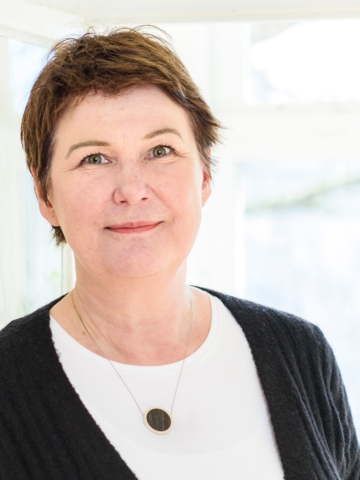
Dr. Kerstin Tschekan
Institut für Quality Development at Schools in Schleswig-Holstein and former director of the Stiftung Louisenlund grammar school
Dr. Kerstin Tschekan is a consultant, trainer, and advisor on the development of teaching and organisations. She works in the fields of leadership and consulting for complex support systems in Germany and German schools abroad, in the qualification of teacher trainers and school consultants, and in leading projects for the further development of general teaching further training and schools development, and in consulting on teaching methodologies and spaces, as well as being a co-editor and author in the field of school and teaching development.
As a teacher of German and Russian, she did her doctorate at the University of Erfurt (on the methodology of foreign language teaching). Her career took her as a consultant at the Thuringia Institute for Teacher Training, Curriculum Development and Media (ThiLLM); she was project head at the State Institute for Teacher Training and School Development Hamburg, heading projects on schools development; department head at the Institute for Quality Development at Schools in Schleswig-Holstein (IQSH), responsible for subject-based further training in Schleswig-Holstein; school director at the Stiftung Louisenlund grammar school, and department head at the Institute for Quality Development at Schools in Schleswig-Holstein (IQSH), responsible for the qualification of leadership personnel and directorship of the master’s programme in school management.
Contact
Stiftung Gebäudeensemble Joachimsthalsches
Gymnasium Templin
Place of business / Postal address:
Prenzlauer Allee 28, 17268 Templin
+49 (0)3987 208 94 50
Account for Donations
Stiftung Gebäudeensemble Joachimsthalsches
Gymnasium Templin
IBAN: DE83 1509 1704 3021 2409 57
